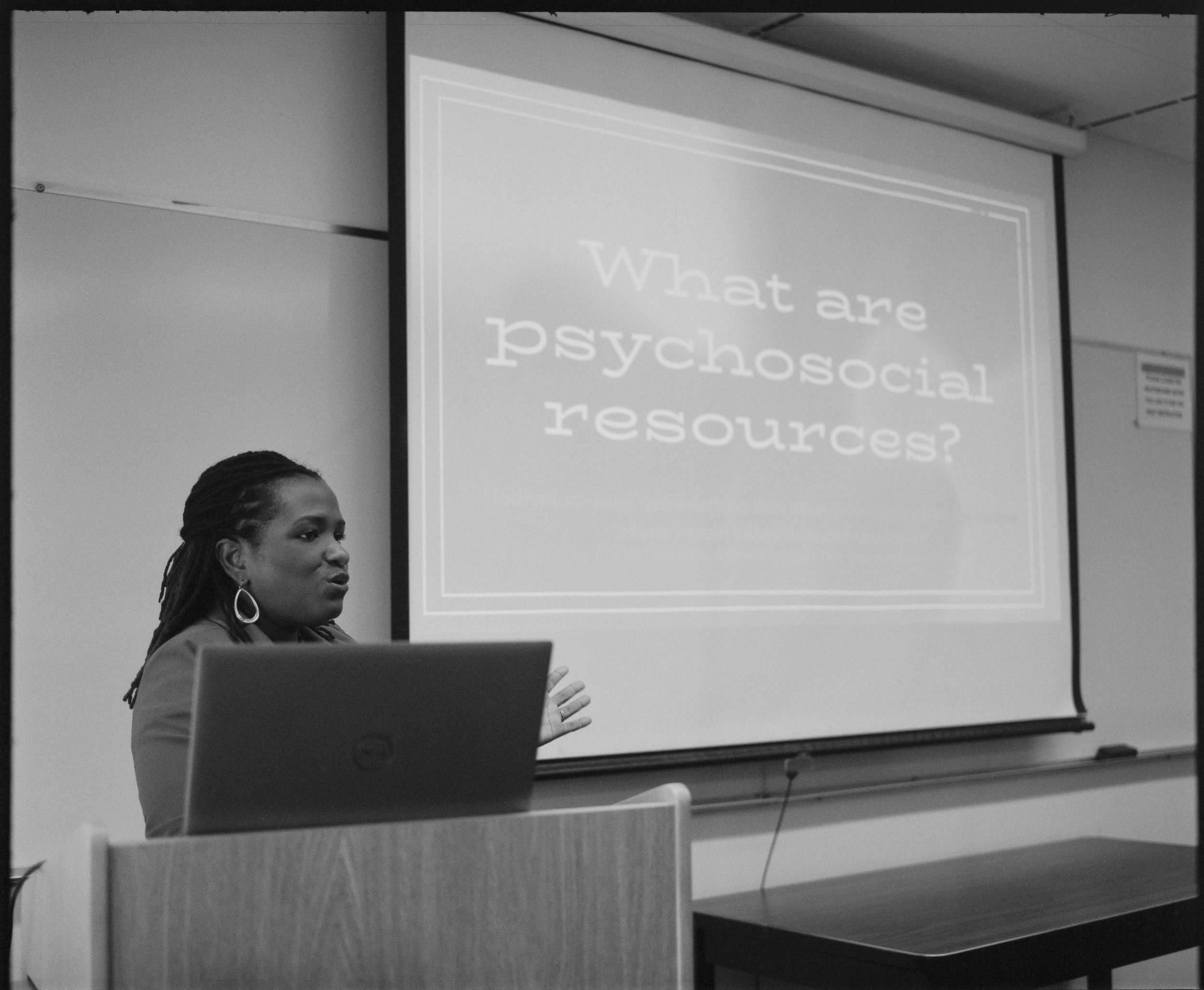
Research and Publications
Research Agenda
As a medical sociologist, I integrate traditional sociological theories with perspectives from public health, social psychology, medicine, and the biological sciences to examine the social, psychological, and biological (i.e., biopsychosocial) pathways that contribute to the health and longevity of Black Americans.
These interests are motivated by an epidemiological paradox: Despite higher levels of lifetime stress exposure, greater socioeconomic disadvantage, and worse physical health, Black Americans experience similar or lower rates of most psychiatric disorders (e.g., major depressive disorder) than White Americans. At the same time, studies show that Black Americans report equal or higher levels of non-specific psychological distress (e.g., depressive symptoms). The low rates of psychiatric disorders relative to physical health issues, as well as the lack of concordance between psychological distress and psychiatric disorders, among Black Americans is especially puzzling, as the etiologies of these outcomes have been traditionally thought to overlap. Nevertheless, since the observed health patterns of Black Americans may be a product of underlying protective factors, a central goal of my work is to identify these health-protective processes, so that they can be harnessed to improve both mental and physical health among this population.
Research Area #1: Psychosocial Pathways to Embodiment
In this area of research, I examine the determinants of and links between mental and physical health outcomes, as well as the biological processes through which they operate (as measured by biomarkers), to clarify the ways that social and psychological experiences become physiologically embodied, manifest into psychiatric disorders and chronic physical conditions, and ultimately contribute to distinct health patterns within and across racial groups.
Research Area #2: Health Risks and Resources across the Life Course
In a second area of research, I evaluate the life course pathways through which risks and resources develop and produce distinct mental and physical health outcomes within and across racial groups.
Research Area #3: Racialized Stress and Coping Processes among Black Americans
In a third research area, I identify and assess race- and racism-related stress and coping processes to understand the varied and often nuanced ways that minoritized racial status shapes the lived experiences and health trajectories of Black Americans across the life course.



